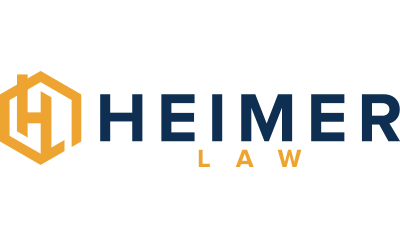A Home Study is a requirement for an adoption in Arkansas. Our home study checklist will help you make sure you’re ready.
You’ll need a licensed home study provider. Research and select a qualified professional licensed in Arkansas to conduct your home study, or let Heimer Law assist you in choosing the right person.
Then gather your documents, make sure your home is safe, and get ready for some searching questions.
Documents
Collect the necessary documents well in advance. This is important because some of the documents may take a while to get hold of. You want to avoid staring like a deer in the headlights when you’re asked for a document. This leads to delays, and it can also make you feel flustered and make the process more difficult for you emotionally.
- Identification: State-issued driver’s licenses or passports for all adults in the household.
- Marriage License (if married)
- Birth Certificates for all household members
- Social Security Cards
- Proof of Income: Recent pay stubs, tax returns, or other documents demonstrating financial stability
- Medical Reports: Updated physical exams and health statements for all adults in the household, including immunization records
- Criminal Background Checks: These are usually required for all adults living in the home, both state and federal, as well as checks from any other states you resided in for the past 5 years.
- Child Abuse Registry Checks: Obtain clearances from child abuse registries in any states you’ve lived in.
- Autobiographical Statements: Personal essays from each adoptive parent outlining your desire to adopt, your childhood experiences, your relationship history, and your vision for your future family
- Reference Letters: Personal references from friends, family members, religious leaders, or colleagues who can speak to your suitability as adoptive parents (3-5 letters recommended)
- Home Ownership/Rental Agreement: Proof of residency and stable housing situation
Home safety
Your house doesn’t have to be large or fancy, but it’s worth making sure that it’s clean and tidy before your home visit. Safety is a primary concern in a home visit. Check these items beforehand to make sure that your home is safe for children.
- Toxic chemicals (like most household cleaning supplies) should be in upper cabinets.
- You should have a basic first aid kit and a fire extinguisher, and you should be able to put your hands on them quickly. Remember, fire extinguishers have expiration dates. The one that was in the house when you moved in might not be current any more.
- Cover electrical outlets and make sure that furnishings are stable and secure. You don’t need to have child-safe latches and corner guards everywhere, but you also should not have any obvious dangers in reach of children.
- Provide information about any pets in the household.
The interview
You might talk with your home study provider more than once, but one of the conversations will be in your home. They will ask a lot of questions, including some that might seem intrusive and uncomfortable. Heimer Law will help you practice so you’ll feel at ease.
- Be prepared to discuss your financial situation and ability to provide for a child.
- Discuss your openness to adopting a child of any age, race, ethnicity, or with special needs. If there are limitations to the kind of child you are willing to adopt, be honest about that.
- Be prepared to discuss your reasons for wanting to adopt.
- Discuss your approach to child-rearing and your expectations for family life. This part of the interview may be uncomfortably intimate, but again be honest and open.
This is a general checklist. Your specific requirements may vary depending on your situation and the home study provider. Remember, their goal is always to make sure that the child you adopt has a safe, stable home. They have your best interests — and especially, the child’s best interests — at heart.
When you work with Heimer Law, you can feel assured that we will have the most current and up-to-date information for you. We will help you prepare for your home study.

